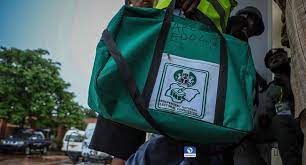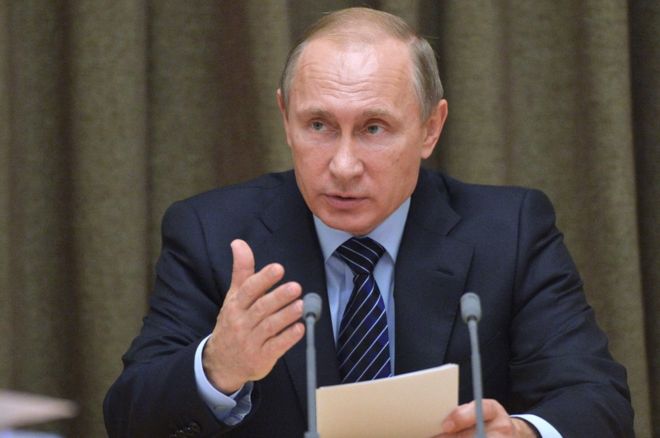INEC Laments Absence Of Cash 10 Days To Poll
The Independent National Electoral Commission (INEC) has expressed concerns that the cashless and currency swap policies of the Central Bank of Nigeria (CBN) will pose a challenge to the successful conduct of the forthcoming general elections.
The concern is coming less than 11 days before the February 25 presidential and national assembly elections.
According to the commission, if nothing is done to address the cash crunch caused by the policies, INEC would find it difficult to deploy staff and materials for the election as most of the services required cash to obtain.
The INEC Resident Electoral Commissioner for the Federal Capital Territory (FCT), Yahaya Bello, stated this in Abuja on Tuesday at the North-central Stakeholders Roundtable on the 2023 election, organised by the Centre for Transparency Advocacy (CTA).
Bello maintained that apart from the cash challenge, the Commission was prepared for election as it has taken delivery of 80 per cent of materials for the polls and trained staff ahead of the exercise.
He said: “Honestly, I don’t see challenges because the commission has made a lot of preparations. A lot of materials have already been gotten. We have done some trainings. We are doing more trainings. We have made a lot of consultations with stakeholders. A lot of materials have been batched to the area councils which is the local government level.
“When you talk about the challenge, sincerely, the challenge to this election as we are going about now in the FCT and by and large, I believe all over the nation is the cash policy. Because we have already enumerated and made our position clear to the authorities; the CBN, the federal government and what have you exactly how we conduct elections.
“This is something that is not only FCT as I said is nationwide and is being tackled at the national level. If there is any challenge for me now conducting this election is to wait and hear the outcome of the discussion and the brief from my national commission (chairman) for whatever they have discussed with the CBN and other authorities with regard to this policy. We are ready for this election.”
Elaborating on how the cashless policy and naira policy would negatively impact on the election, Bello said: “Before the election day we are going to deploy the services providers.
“On the night of Friday (day before the election) in the FCT, we have more than 12, 000 ad-hoc staff that we are going to give cash none of them will receive a cheque or accept a transfer. I am talking about FCT (12,00) that will require about N5000 cash on Friday night.
“Also those who are going to transport our men, materials and security to the polling units they will need cash to do that. In Kano we have 44 local governments, and they are going to move to how many polling units.?
“There is money for security because you can not take a security person to a polling unit without giving him money to eat and I don’t see the N1000 you have given to him, he will go to the POS and withdraw it.”
He added that about 80 per cent of Permanent Voter Cards (PVCs) of those who registered during the last Continuous Voter Registration (CVR) exercise had been collected.
Earlier, the Executive Director of CTA, Faith Nwadishi advocated that the peace accord signed by politicians be made a legal document that people can use to hold the politicians who subscribe it accountable.
Nwadishi said the non-adherence to the peace accord signed by political parties and their candidates was responsible for the violent attacks at campaigns as well during elections.
She said: “At last count, there had been about 50 incidents and attacks in 15 states of the Federation. The type of attacks includes bandits’ attacks, Post-Election Attacks, Boko haram, Thuggery on election day, Unknown Gunmen and Hoodlums, and End SARS, among others.
“In January 2023 alone, according to a recently published report, by the Global Rights’ Incident Centre for Election Atrocities, there were 19 attacks on politicians and politically exposed persons; 30 politically motivated killings; 6 attacks on political party rallies; 15 politically motivated abductions and 5 attacks on government facilities and police stations
“It is important at this juncture to remind the politicians of the Peace Accord that they voluntarily signed. This has become important as the heat of the elections and campaigns have intensified. It is reported that within a month – 8 October to 9 November, a total of 52 election-related acts of violence were recorded in 22 states.
“This number is scary and must not be allowed to fester. We call on politicians to respect the peace accord that they voluntarily signed, reign in their supporters, respect other candidates, stop the use of abusive words and above all, shun violence as we have only one country that we can call our own.
“We are advocating that henceforth, it is important that we make it (peace accord) a legal document that people can use to hold them accountable.”
The CTA Director called on all stakeholders to say no to money politics, all forms of inducement and money laundering associated with elections, stressing that citizens’ choices must never be subverted by the negative use of money to influence votes including the criminal purchases of PVCs by politicians.
She commended INEC for extending the Permanent Voter Cards collection period by two weeks which has now ended but appealed to the commission to further extend the exercise by at least one week before the Presidential and National Assembly elections.





